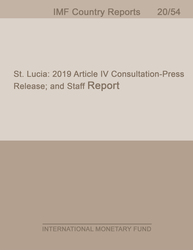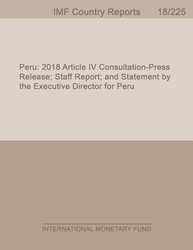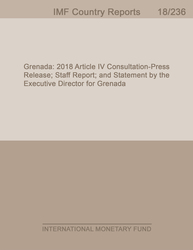
St. Lucia:2019 Article IV Consultation-Press Release; and Staff Report
2019 Article IV Consultation-Press Release; and Staff Report
READ MORE...
Volume/Issue:
Volume 2020
Issue 054
Publication date: February 2020
ISBN: 9781513530963
$18.00
Add to Cart by clicking price of the language and format you'd like to purchase
Available Languages and Formats
| English |
Prices in red indicate formats that are not yet available but are forthcoming.
Topics covered in this book
This title contains information about the following subjects.
Click on a subject if you would like to see other titles with the same subjects.
Banks and Banking , Public Finance , Taxation - General , Industries - Hospitality Travel and Tourism , Natural Disasters , ISCR , CR , investment , infrastructure investment , cost , CARTAC TA , energy price shock , CARTAC Customs , CARTAC Mac programme , fuel price pressure , Natural disasters , Tax administration core functions , Tourism , Caribbean , Global
Also of interest
Summary
This 2019 Article IV Consultation explains that St. Lucia’s near-term growth prospects are favorable, supported by large infrastructure investment and robust tourist inflows. However, longer-term growth continues to be impeded by high public debt, lingering vulnerabilities in the financial system, and structural impediments to private investment. Diminishing policy buffers further weaken the country’s resilience to external shocks against the backdrop of aprecarious global outlook. Completion of long pending legislative initiatives, alongside stronger regional and domestic financial oversight, should provide banks with incentives to strengthen their balance sheets and increase the efficiency of financial intermediation. There is also a need to draw on supervisory and regulatory tools to respond to emerging risks from rising overseas investments of the banks and the rapid expansion of lending by credit unions. The authorities are recommended to should step up efforts to address the institutional, financing and capacity gaps in its climate and disaster response strategy. Supply-side reforms are needed to unlock potential growth by improving the business environment, reducing energy costs, enhancing labor productivity, and further diversifying the economy.
Copyright © 2010 - 2026
Powered by:
AIDC



